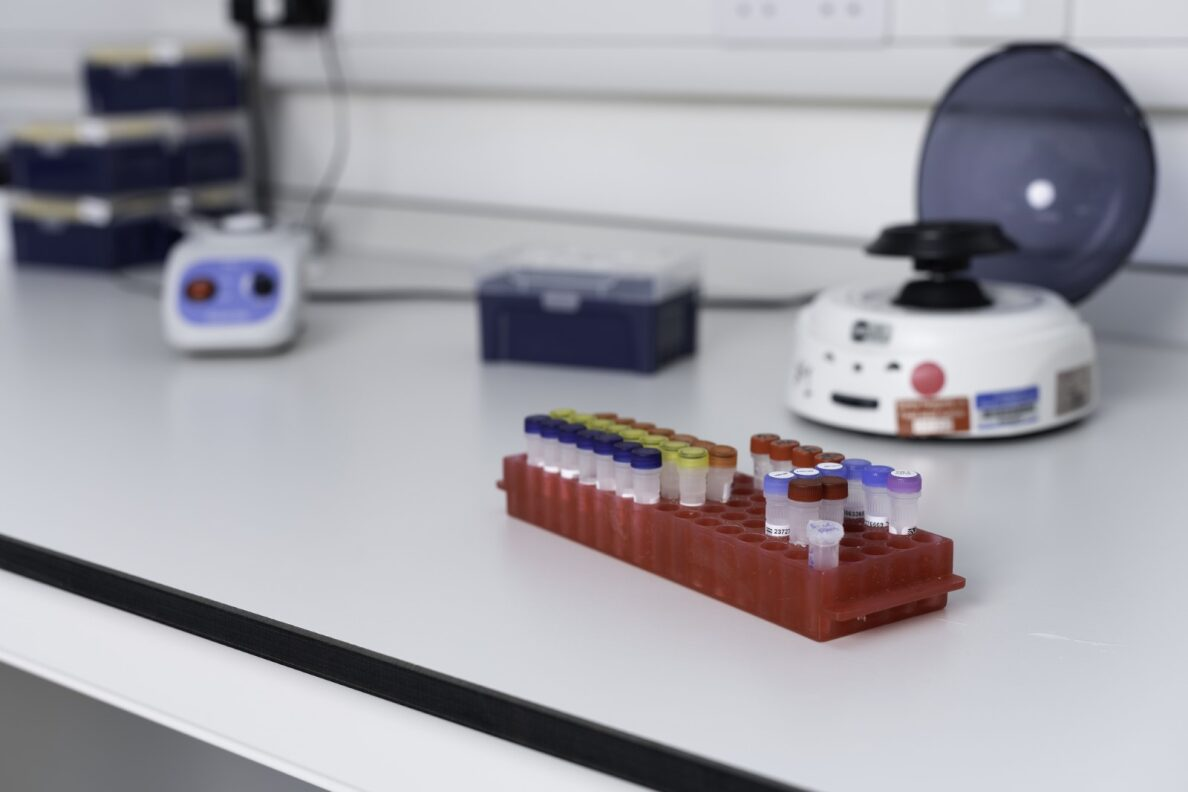
Molecular Reagents
Products include PCR and RT-PCR enzymes, ultra-pure dNTPs, and buffer systems for IVD assay development and optimization. In addition to these reagents, Meridian has also developed a range of ready-to-use solutions for molecular diagnostic manufacturers. These include enzymes and mixes formulated for lyophilization, internal quality controls to monitor extraction and co-purification of inhibitor in qPCR/RT-qPCR assays, as well as a unique mix designed for direct qPCR from crude lysates.
Reagents to make your own Master Mix
Not seeing what you’re looking for? Inquire about a new product
- Glycerol-free options, to eliminate the need for cold-chain shipping and storage.
- High-concentrated, to maximize sample input and increase sensitivity.
- Fast reaction kinetics for quicker time to results.
- Enzymes, buffers and pre-formulated master mixes.
Meridian has high-concentration, glycerol-free and lyo-ready enzyme and mixes, formulated for lyophilization or air-drying, for ambient temperature shipping and storage, extending shelf-life and increased flexibility in sample volume, internal quality controls to monitor extraction and co-purification of inhibitor in qPCR/RT-qPCR assays, as well as a unique mix designed for direct qPCR and LAMP from a variety of crude clinical specimens (e.g. blood, saliva, urine and stool).
Air-Dryable™ qPCR and RT-qPCR Mixes
Air-Dryable™ qPCR and RT-qPCR Mixes
Catalogs & Brochures
Reagent Solutions for Molecular DiagnosticsReagent Solutions for Molecular Diagnostics
Master Mixes for Molecular Ambient-Temperature Stable AssaysMaster Mixes for Molecular Ambient-Temperature Stable Assays
FAQs
Glycerol is used with most enzymes as a cryoprotectant and stabilizer. The presence of glycerol prevents the formation of ice crystals during freezing that can damage enzymes. If glycerol is removed, it needs to be substituted with stabilizers and enhancers that will do the same job. Lyophilization and air drying on the other hand requires the enzyme to be stable at very low or very high temperatures and maintain their activity after the water molecules have been removed. This requires a different set of excipients that will protect the enzyme during this process. Glycerol-free enzymes do not have these excipients, and these will need to be added prior to lyophilization or air drying.
High-concentration enzymes help reduce volumes when drying down, making the process faster, they also reduce volumes in microfluidic, cartridges and point of care (POC) devices, allowing for more sample to be added. They facilitate optimization and can speed up the reaction (as long as there is substrate available to bind to), increasing sensitivity and yield, as a result, they can be employed in a wide range of assay formats, allowing more flexibility for development and cost saving during commercialization.
Lyophilization is done by freezing and sublimation in a vacuum, forming a cake or bead, it has very low viscosity and up to 99% of the moisture is removed. Drying normally take 18-24 hours and requires cryo-excipients that protect the enzymes during the freezing. The reagents can be lyophilized to a bead or a cake format.
Air-drying is done by heating in a convection oven, forming a highly viscous pellet, with about 95% of the moisture removed. Drying normally take less than 2 hours and requires heat protecting excipients that protect the enzymes at higher temperatures. The reagents can be air-dried to a soft viscous format.
Lyophilization and air-drying helps to extend the product’s shelf life, enhance the stability of the reagents at higher temperatures, and allows for convenient and accurate dispensing of the reagents. After drying, the reagents are easily reconstituted with sample material.
Yes, reaction conditions are the same and they will produce the same results, this means that the liquid mixes can be used to create SOPs if you do not want to dry down and then later if drying is required (for example to increase sensitivity), the SOP can be updated for drying, it does not require completely new SOPs to be written, but excipients will need to be added.
Following drying in the presence or absence of a buffer containing excipients, primers/probes, most or our mixes should be stable for a minimum of 24 months at ambient temperature. Following rehydration, the assay reproducibility, sensitivity, and robustness should be the same as for a freshly made liquid mix.
No, our lyo-excipients are proprietary, if you require a buffer that contains lyo-excipients, we have the Lyo-Ready qPCR Buffer, 2.5x (MDX022).
Get in Touch With a Specialist
Have questions about a product? Want to learn more about Meridian’s molecular or immunoassay reagent portfolio? We want to hear from you!